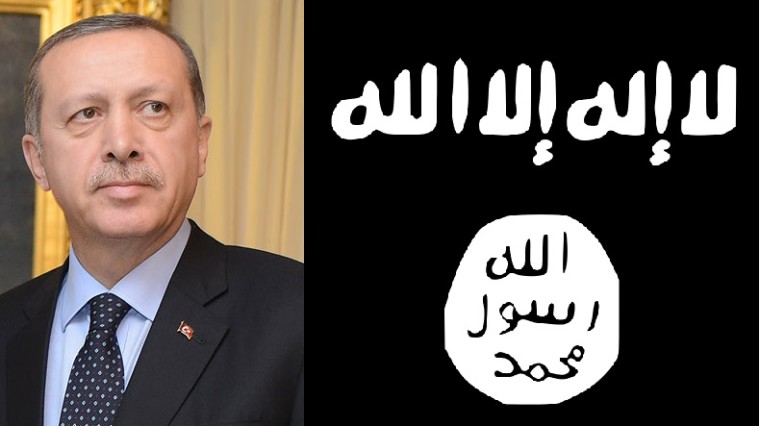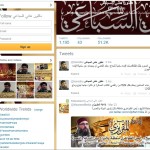ISIS IN TURKEY: THE SPILLOVER FROM SYRIA
ISIS IN TURKEY: THE SPILLOVER FROM SYRIA
By Ronald Sandee
Spillover in Turkey from multiple ongoing wars in Syria continues to grow.
In the autumn of 2013, Turkey’s Syria policy started to shift. Highlighting the cause for such recalculations, an Arab diplomat described the situation along Turkey’s border with Syria this way: “They have a real problem on their hands. What kind of country’s foreign policy loses control of one of their borders?” The diplomat explained, “Turkey started to change its policy, from [originally] helping almost all elements of the opposition with the hope that it would shorten the time taken to oust Assad. Under pressure from allies in Washington it is now more discriminating about who it supports.”
Indeed, growing threats and incidents — notably the massive car bombing that occurred in Reyhanli in May 2013 — prompted Ankara’s shift from an accommodator of terrorist elements active in Syria to an increasingly aggressive counterterrorism enforcer.
Despite such measures, today, one important question before Turkish security officials is this: Have jihadi groups that authorities long allowed to operate inside Turkey established large enough networks inside the country to make it possible for them to challenge the state?
Al-Qa’ida and ISIS have longstanding and sophisticated terrorist facilitation networks in Turkey. Further, the country has not been immune to the conspiracies of terrorists operating on Turkish soil. For example, in August 2005 authorities arrested Syrian national Luay Sakka. Linked to both al-Qa’ida and the Zarqawi network, Sakka was plotting attacks on Israeli cruise ships in Turkish ports.
In addition, Central Asian terrorist organizations like the Islamic Movement of Uzbekistan and Islamic Jihad Union have fallback positions and facilitation networks inside Turkey.
During 2014, tensions between Turkey and especially ISIS have been escalating fast. Late in January, Turkish artillery and tanks engaged an ISIS convoy, destroying a pick-up truck, a lorry and a bus inside Syria. Turkish troops opened fire on ISIS positions in northern Syria after a mortar shell fired from Syria landed in Turkish territory during clashes between ISIS and the Free Syrian Army.
On 17 February 2014, heavy weapons and five bomb devices were found in an ambulance that carried a pregnant woman from Syria to the southeastern province of Kilis in Turkey. Authorities thought the explosive devices in the ambulance were intended for use in an ISIS plot to strike the Öncüpinar border crossing, one of the few border crossings not controlled by ISIS.
Three days later, 26 were killed when a VBIED exploded on the Syrian side of the Bab al-Salama border crossing. The Syrian side of the crossing is under the control of Islamist rebels who have been battling ISIL/ISIS fighters since early January.
On 23 February 2014, ISIS attacked a hospital in the town of Atmeh, opposite the Turkish village of Bükülmez in the province of Hatay, killing 14 people. The target was owned by Ghassan Abboud, a pro-opposition businessman who owns Orient Television. Based in Dubai and broadcasting into Syria, Orient Television had become a prominent source of criticisms lodged against ISIS, whose fighters were driven out of Atmeh in December 2013 by a coalition of Islamist rebels that included fighters from Jabhat al-Nusrah and the Islamic Front.
As these incidents grew in number, Turkey decided to tighten security along its border with Syria, especially in the buffer zone between the two borders.
Late in February, police and gendarmerie forces began patrolling the buffer zone in armored vehicles. Turkish intelligence services have also intensified their work, with the National Intelligence Organization (MİT) deploying a special team of experts.
Tensions increased further when ISIS, in a 16 March 2014 video message, broadcasted the following threat: “If Turkish soldiers do not withdraw from the Süleyman Şah Tomb in three days, we will destroy the tomb.” Ankara’s response has been notable.
The tomb for Süleyman Şah, the founder of the Seljuk Empire in Anatolia who died in 1086, is located in the governorate of Aleppo. Two Turkish F-16 fighter jets are reportedly on duty to protect the tomb from both Syrian government forces and ISIS.
Commenting on that situation, Turkish Foreign Minister Ahmet Davutoğlu advised, “As of now, there has been no [move on] our soldiers or our land there. But in the event of such a threat, we are ready to take all sorts of precautions.”
On 20 March 2014, as security forces conducted routine checks on the Ulukisla-Adana expressway, three foreigners emerged from a vehicle, fired AK-47s and lobbed a hand grenade. A soldier and a police officer were among the three people killed during the incident. Five soldiers were wounded.
The attackers were also wounded, but managed to escape in a van they commandeered during the exchange of fire. Two of the attackers were apprehended at Eminlik village. The third attacker was caught in the local mosque at the village Ulukisla in the township Pozanti. The attackers had three AK-47s, three pistols, seven hand grenades, two silencers, three bayonets and radios. It was learned the attackers came from the ISIS-controlled Atmeh region. They had entered Turkey via Hatay and hired a vehicle for 2,500 Turkish Lira ($1,300).
The three attackers were a 23-year-old Swiss Kosovar, an 18-year-old Macedonian and an 18-year-old Albanian who had been living in Berlin. Neither the Swiss Kosovar nor the Macedonian shooter expressed remorse. The Swiss attacker said, “I did a good deed by killing the Turkish gendarmerie soldier,” adding: “I don’t render an account to anyone but Allah. I will not give any testimony. You are all pagans.” He also said that he considered Turkey an “enemy” for being a NATO member. The driver said he had nothing to do with the attack. Accordingly, he was merely a driver and was under the influence of drugs at the time of the incident.
Turkish government officials were quick to link this incident with the ISIS threat to bomb the tomb for Süleyman Şah. A terror summit was convened in Ankara, which might indicate the seriousness of the attack.
Following the emergency meeting — a recording of which was later leaked on the Internet — Turkish authorities had enough information to make a decision to intervene in Istanbul.
During the evening of 25 March, Turkish Special Forces and anti-terror units stormed several buildings in the Ümraniye neighborhood. During this operation, a suspect fired a weapon. Two suspects (male and female) and three policemen were injured during the exchange of fire that followed. The injured suspects were captured and transferred to Haydarpaşa hospital. The following day, Turkish Interior Minister Efkan Ala said the two were thought to have been trained in Syria and had links to ISIS.
Although policies adopted by the governments of Turkey and Qatar have become vital forms of support for ISIS and al-Qa’ida-affiliated groups active in Syria, Turkey — unlike Qatar — is beginning to realize the potential that significant blowback may arise from its Syria policies. A Turkish commentator explained each country’s role this way: Qatar is now the “main sponsor” of the Syrian opposition, including al-Qa’ida-affiliated groups active in Syria, and Turkey is both the opposition’s “main logistical resource” and “the location from where they have been infiltrating into Syria.”
Recent developments indicate ISIS may grow its confrontational posture toward Turkey during the months ahead. While it is not yet clear how Turkey intends to address such a scenario as this, if Turkey were to pursue a sweeping counterterrorism campaign that targets not just ISIS, but all jihadi groups now using Turkey as a veritable rear operating base, the resultant effects could entail a substantial weakening of the group which presently poses the greatest challenge to ISIS’s ambitions in neighboring Syria, Jabhat al-Nusrah. As this group has also been one of the most effective anti-Assad elements active in Syria, it is almost certain that weakening it would also serve to undermine Ankara’s efforts to shape a future that entails new leadership next door in Syria.
Meanwhile, there are indications that Jabhat al-Nusrah — no-doubt as a result of the movements of growing numbers of senior al-Qa’ida officials into Syria — is preparing to conduct more operations beyond Syria’s borders. Therefore, it is worth considering that, beginning with the video produced to announce its formation, Jabhat al-Nusrah has been highly critical of Turkish Prime Minister Recep Erdogan.
Clearly, Mr. Erdogan is now confronted with a series of difficult decisions due to his policies that were adopted to bolster the anti-Assad opposition in Syria. Not the least of which pertain to questions about how a move against terrorist groups active in Syria could impact Turkey’s relations with a leading state sponsor of them. Indeed, perhaps the most significant strategic decision before Mr. Erdogan is this: Do I maintain our alliance with Qatar, and continue risking the safety and security of my own people?




